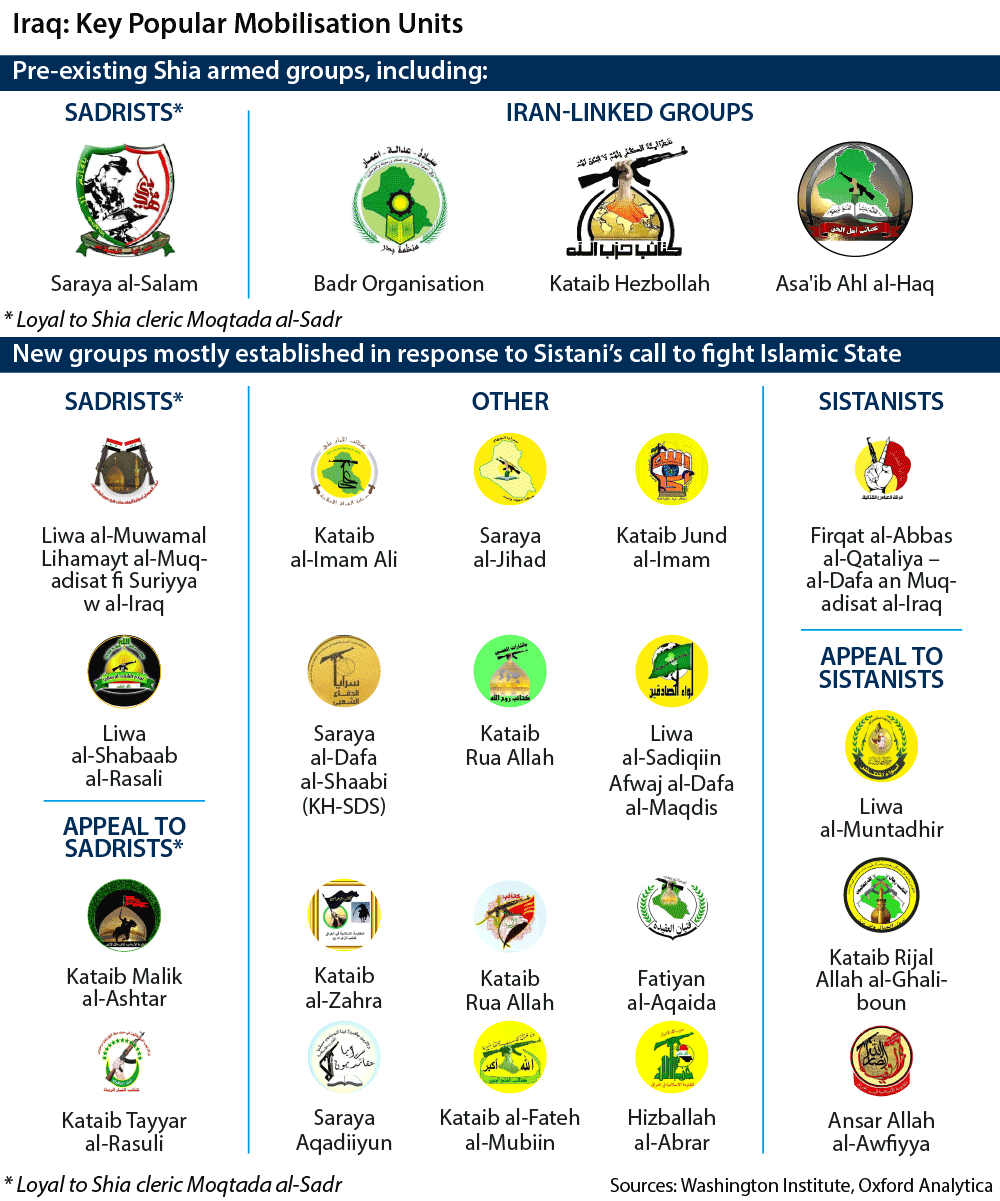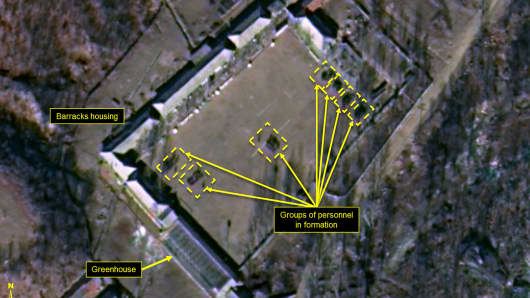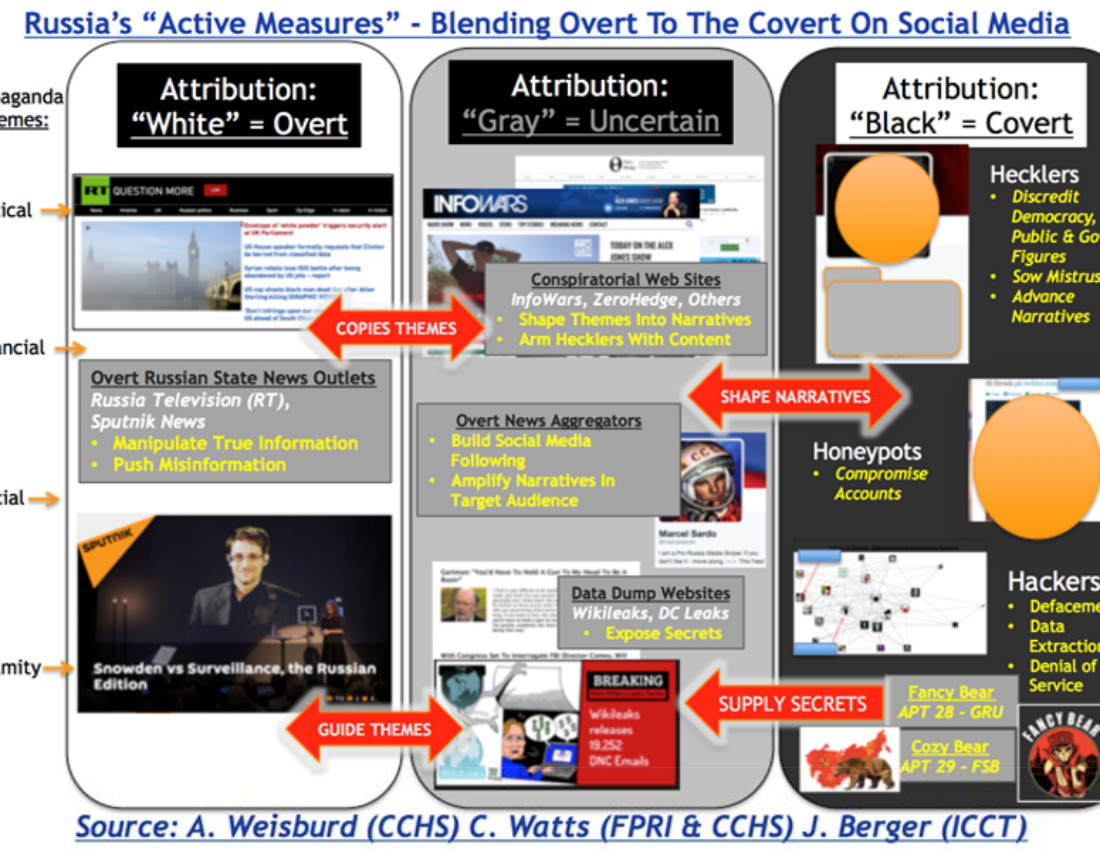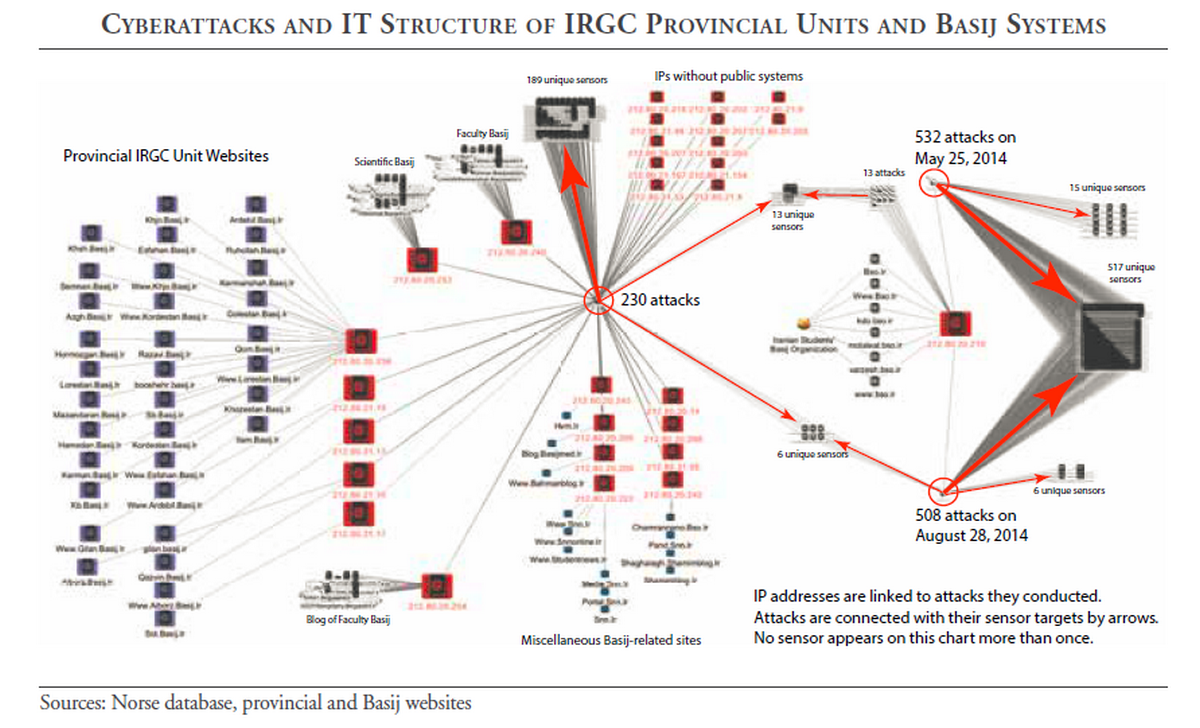Reading through the summary below, it begs the question once again: Did Iran demand Obama remove troops from Iraq in order to advance the talks on the nuclear agreement? It also adds a similar question: Did Iran demand the same in Afghanistan?

Related reading: Why Obama Let Iran’s Green Revolution Fail
Modern War Institute: In March 2017, the head of Iran’s Foundation of Martyrs and Veterans Affairs stated, “Some 2,100 martyrs have been martyred so far in Iraq and other places defending the holy mausoleums.” These 2,100 Iranian deaths over the past five years of fighting in Iraq and Syria are nearly equivalent to the 2,400 American deaths in seventeen years of combat in Afghanistan. Yet, although initial domestic support for American intervention in Afghanistan was the highest of all such military action since Gallup started collecting data in 1983, by February 2014, as casualties mounted, a plurality of Americans viewed the war in Afghanistan as a mistake. In contrast, the Iranian government narrative that its soldiers are protecting Shi’a holy sites in Syria has driven consistently high public approval with 89 percent of Iranians supporting the defense of shrines in Syria and about 65 percent supporting the deployment of Iranian soldiers to do so.
With the relationship between military intervention and domestic public support in mind, the comparison of forces between Iran and the United States depends more on willingness to use those forces than the capabilities they represent. On the surface, Iran faces the overwhelming power projection of the United States, along with the conventional superiority of US and Gulf Cooperation Council military forces. Despite this disparity, Iran is able to use a suite of conventional, unconventional, and proxy forces to deter potential aggressors, compete with regional peers, and influence states it considers vital to its national security. Along these lines, Iran attempts to circumvent American military strengths against which the Iranian military would lose, in favor of asymmetric concepts including its ballistic missile program; anti-access, area denial tactics; and support to proxy groups.
These three methods hinge on a competition of resolve between Iran and its rivals to incur the costs of conflict: the former two affect the cost calculation of potential adversaries and the latter displays Iran’s willingness to assume more risk than its opponents in pursuit of its political ends abroad. Determining the interests for which Iran is willing to incur high costs is essential if the United States expects to “neutralize Iranian malign influence,” a priority identified in the 2017 National Security Strategy. This comes as the US public decidedly prefers intervention in the form of airstrikes and Tomahawk cruise missiles rather than ground troops who could actually influence partner forces determined to counter that Iranian influence.
Balance of Power in the Middle East
Kenneth Waltz quipped that “power begs to be balanced” while defending the notion that proliferation of nuclear weapons technology to Iran would stabilize the Middle East. For Waltz and other theorists who espouse a realist view of international politics, the Middle East faces a two-pronged challenge to future stability based on the distribution of power among states therein. First, Israel’s possession of nuclear weapons under “strategic ambiguity” makes the relationship between Israel and other states in the region inherently imbalanced and therefore prone to conflict. Second, US abandonment of its “dual containment” strategy in favor of aggressive interventionist policies in the wake of the September 11 terrorist attacks destroyed Iraq as a major Middle East power and the regional bipolar balance between Iraq and Iran as a consequence.
According to realists’ view, even distributions of power promote stability and peace as the cost-benefit analysis of war yields little chance of positive gains against an adversary of similar strength, whereas uneven distributions of power increase the uncertainty of intentions between states who assess war as a likely result of a zero-sum security competition. In this latter scenario, weaker states tend to balance against stronger rivals by increasing political, military, and economic power through either internal means or alliance formation. As Stephen Walt further points out in his work “Alliance Formation and the Balance of Power,” this balancing behavior is most likely when states assess a rival as having not only the capability of attacking, but also the intention of doing so. Furthermore, situations where states face an overwhelming power differential are particularly vexing because the prospects of successfully balancing are so grim.
There is, however, a difference between possessing military power and actually using it, especially when doing so involves risks to domestic political support and stability. Whereas William Wohlforth in his article on unipolarity predicts that no state would bother attempting to balance against the clear and unambiguous military and economic superiority of the United States, the aftermath of the wars in Iraq and Afghanistan have led potential rivals to reassess US willingness to use its insurmountable ability to project and sustain military force. Therefore, rather than competing with the entire US military, Iran must make foreign policy decisions based on the military forces it expects the United States and its partners to use regionally. When the fight is between proxies and special operations forces, Iran’s prospects for balancing against its regional rivals and expanding its influence are less daunting and even optimistic.
Iran’s Play in Syria
Iran has been on a trajectory of increasing commitment to Syria since an uprising nearly deposed the regime of Bashar al-Assad starting in 2011. Unwilling to lose a longstanding ally and mechanism of supporting proxy groups in Lebanon and Palestine, Iran has relied upon the Islamic Revolutionary Guards Corps (IRGC), especially the externally oriented Quds Force, to support the Syrian regime. Originally founded to defend the Islamic revolution in Iran from internal and external threats, the IRGC has expanded in scope as the political and military mechanism of choice for Iran to expand its influence in the Middle East. Beyond sending its own forces, Iran has used the IRGC to lead foreign fighters and has directed the deployment of Lebanese Hezbollah fighters to Syria by the thousands. Iran’s model for applying force in the Middle East plays to its asymmetric strengths, while exploiting the perceived weaknesses of the United States and its allies, which Iran regards as risk averse, sensitive to casualties, and reliant on technological superiority and regional bases from which to project power. Iran has displayed not only a willingness to assume risk by deploying IRGC operatives to contested and denied areas, but has also been sustaining casualties in its campaign in Syria.
These casualties have varied in number, nationality, and military unit since the beginning of Iranian intervention in Syria, which speaks to Iranian resolve to support the Assad regime. The Washington Institute for Near East Policy has done extensive research on Iranian media reporting of casualties in Syria. At first, the majority of those killed under the direction of Iran were Lebanese and Afghan, due to extensive Hezbollah deployments and IRGC recruitment of Afghan Shi’a to fight in Syria. Iranian casualties however, tended to be high-ranking IRGC members such as its deputy commander, Gen. Hossein Hamedani, who was killed in October 2015 near Aleppo. This indicates that IRGC operatives were training, advising, and leading Syrian units and foreign fighters, rather than their own military formations of lower-ranking Iranian soldiers.
As the civil war continued and foreign fighters could no longer sustain the tempo of operations, Iran began committing its own forces in 2015, including lower-ranking soldiers from IRGC units like the 2nd Imam Majtaba Brigade, 7th Vali Asr Division, and 2nd Imam Sajjad Brigade. These units are from the IRGC Ground Forces, whose security mandate is more internally focused than that of the Quds Force. This indicates not only a shift from a training and advisory mission to a more direct role in the fighting, but also a commitment of a larger portion of the Iranian armed forces to the fight in Syria. As a result, Iranian fatalities skyrocketed. However, Iran has given no indication of war weariness in the face of mounting human and economic costs of its unconventional fight in Syria, with even the semiofficial Fars news agency openly reporting IRGC casualties.
Domestic Backlash in Iran
Iran is no stranger to internal protests over domestic politics and foreign affairs. The Green Movement of June 2009 protesting the disputed re-election of Mahmoud Ahmadinejad showed that Iranian authorities cannot simply ignore public opinion and revealed a true power struggle between the government and the opposition. While the lasting effects of the Green Movement on the relationship between public opinion and Iranian decision-making are unclear, polling leading up to the signing of the Joint Comprehensive Plan of Action indicated vast public support in Iran for a deal, often in contrast with the public statements of Ayatollah Khamenei against it.
Recent massive public protests against Iranian macroeconomic conditions including high inflation and high unemployment have further displayed the Iranian government’s exposure to domestic political backlash for its policies. President Hassan Rouhani was reelected in 2017 by wide margins on a platform of economic hope in the wake of sanctions relief under the nuclear deal. However, inbound investment that results from improving economic relationships tends to benefit large conglomerates often owned by the IRGC like Khatam al-Anbiya, which has large stakes in the oil, transportation, and construction industries. Meanwhile, unemployment among youth and inflation remain high, as Iranian economic policies have not promoted growth that would create jobs for most Iranian citizens. As novelist Suzanne Collins’ character President Snow said in The Hunger Games: “Hope. It is the only thing stronger than fear. A little hope is effective. A lot of hope is dangerous. A spark is fine, as long as it’s contained.” Iranians have a lot of hope about their economic future; failure to deliver might lead to disaster, especially as Iran announces vast increases in military spending with an extra $7.5 billion to the IRGC (15 percent increase), $2.7 billion to the Iranian army (25 percent increase), and a separate $72 million subsidy directly to Khatam al-Anbiya.
Cost Calculation in Foreign Policy
Iran’s willingness to incur the costs of an aggressive foreign policy is not uniform across the Middle East. Iran views the outcome of the Syrian civil war as critical to its national interests and is therefore willing to expend physical and economic costs to sustain the Assad regime. However, Iran is reticent to suffer Syria-type casualties in places like Yemen, where Iran has limited its intervention to Lebanese Hezbollah fighters and high-ranking IRGC operatives leading Houthi militias. This is reminiscent of the “train, advise, and assist” mission that marked the initial phases of Iranian intervention in Syria. As a result, Iran has only sustained forty-four fatalities over the past two years of fighting in Yemen and has not publicized those deaths. This is problematic for Iran as Saudi Arabia and the United Arab Emirates show no signs of wavering in support of the government of Abdrabbuh Mansur al-Hadi, despite international backlash against the air campaign.
Conflicts like those in Yemen and Syria display the gruesome truth of the competition between the United States and Iran in the Middle East; namely, it boils down to a question of who wants it more. While the United States has shown its willingness to incur human and economic costs in Iraq and Afghanistan over the past fifteen years, it is not clear whether the American people would support another effort of similar size and scope in the near term. In fact, according to Gallup, American support for the ongoing campaign in Syria has reached historic lows when compared to other conflicts over the past thirty-five years. Furthermore, US Central Command, charged with leading military operations across the Middle East and Central Asia, is preparing to shift its priority back to Afghanistan—this as Iran shows no intention of decreasing its presence in either Iraq or Syria.
This is not to say that the United States cannot achieve its foreign policy goals vis-à-vis Iran in the Middle East without incurring high costs; it means that the United States will need to enable partners who are willing to do so. However, merely funding and providing material support to partner forces does not guarantee that they will act according to US national interests. That more elusive objective depends on the influence that sponsors have over proxies and still involves accepting a degree of risk. Although varying in scope depending on the target country, Iran exposes its IRGC operatives to the inherent dangers of the battlefield and shares that risk with its partners. Combined with what is often an ideological connection with proxies, this shared danger does much to influence the forces with which Iran partners. In contrast, the United States rarely exposes its special operations forces in the same way. In Iraq and Syria especially, the United States has largely demanded that its proxies assume the vast majority of the tactical risk, which negatively affects the perception of American resolve to accomplish its stated objectives.
Even overwhelming military force is only a useful deterrent if adversaries believe a state has the resolve to use it. American reticence to use the breadth of its military strength to counter Iranian influence in the Middle East has reduced the competition to irregular forces and both state and nonstate partners. In this realm, displaying resolve is still vitally important. Although recent protests indicate Iran is not immune to domestic backlash, Iran has shown a willingness to use and lose its special operations forces in external operations. The United States risks losing influence in the Middle East and control of its partner forces if it is not willing to expose its own special operations forces in a similar way. In the end, the competition between the United States and Iran in the Middle East comes down to resolve.






